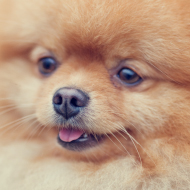
Organisations issue updated guidance
The BVA has issued a response after Chinese authorities confirmed that a dog in Hong Kong has repeatedly tested ‘weak positive’ for COVID-19, indicating a low level of infection.
The Chinese Agriculture, Fisheries and Conservation Department (AFCD) first collected samples from the Pomeranian dog on February 26, and detected low levels of COVID-19 from its nasal and oral cavity samples. Further tests were carried out to determine if this was the result of infection or contamination.
According to the AFCD, repeated testing showed that the dog’s nasal and oral cavity samples, and nasal samples, respectively, tested weak positive for the virus.
Experts from Hong Kong and the World Organisation for Animal Health (OIE) have been consulted, and unanimously agree that the results suggest the dog has a low-level of infection and it is likely to be a case of human-to-animal transmission. The dog has not shown any clinical signs of the disease and is still under quarantine.
In the BVA’s statement, president Daniella Dos Santos said: “We are very wary of speculating beyond the information that is available at the time of commenting (6:30pm, 4 March).
“However, we’re aware that during the SARS outbreak in 2003, a small number of cats and dogs tested positive for the virus. These animals did not transmit the virus to other animals of the same species or to humans.
“We are particularly keen not to cause any unnecessary concern that could lead to pet abandonment. We would emphasise that at the moment, there remains no evidence that pet animals can be a source of infection of COVID-19 for humans or other animals, or that they become sick.
“The main source of infection remains human-to-human transmission.”
Veterinary and animal organisations reiterated that there is still no evidence that pets can fall ill due to COVID-19 or be a source of infection. Owners and those working with animals are encouraged to continue practising good hygiene and following the guidance provided.
Daniella Dos Santos continued: “Our advice for pet owners who have been instructed to self-isolate because of infection or risk of infection with COVID-19 is to keep your pets isolated with you but restrict your contact with them as a precautionary measure until more information is known about the virus and routes of transmission.
Owners concerned that their pet may be showing clinical signs have been asked to call their veterinary practice for advice and not to take the animal into practice without being instructed to do so first.
The WSAVA has updated its advisory document, which can be accessed here. The OIE has also published an up-to-date Q&A on COVID-19, available here.



 The Veterinary Medicines Directorate (VMD) is inviting applications from veterinary students to attend a one-week extramural studies (EMS) placement in July 2026.
The Veterinary Medicines Directorate (VMD) is inviting applications from veterinary students to attend a one-week extramural studies (EMS) placement in July 2026.